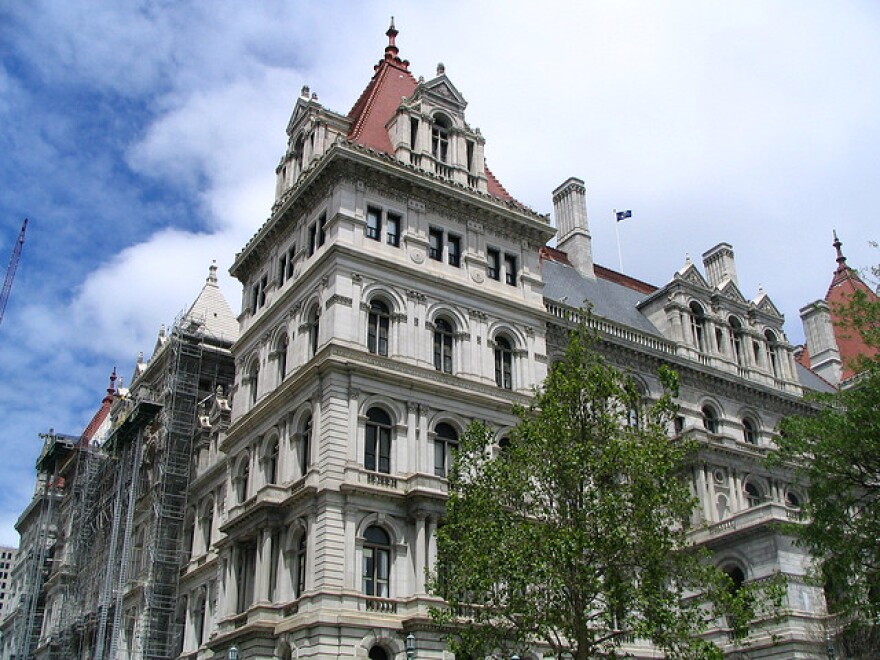Supporters of Gov. Andrew Cuomo’s education tax credit were at the Capitol to persuade lawmakers that the credit, which would benefit donors to private and charter schools, should be approved as part of the state budget.
Under the provisions of the education tax credit proposed by Cuomo, people and businesses can donate up to $1 million to a scholarship fund to send underprivileged children to private schools, or the publicly funded, but privately run, charter schools. In exchange, they would get a tax credit on their state taxes of 75 percent of the amount they donate, or up to $750,000.
Supporters include Darla Romfo, who runs the Children’s Scholarship Fund, which helps finance private school education for underprivileged kids. She says with the tax credit, which would be $300 million over a three year period, many more children would benefit.
“Right now we help 8,300 kids, but we could double or triple that number,” Romfo says.
Jorvelyn Tejada, who lives in Washington Heights in upper Manhattan, is a scholarship recipient and senior at Notre Dame High School. She says her favorite subject is history.
“I love learning about history,” Tejada said.
She says she’s been given many opportunities that her local public school would not have offered, like the ability to take college level classes at Columbia.
Jorvelyn says one difference between herself and her friends who are still in public school,- they aren’t encouraged to do things like apply to Ivy League colleges, even if their grades are high.
“They’re not teaching them to soar beyond their expectations,” Tejada said. “They want to keep them in their comfort lane.”
Tejada says at the Catholic school she attends “they teach you to push your boundaries.”
The tax credit faces opposition from teachers unions and some fiscal watch dogs. Ron Deutsch, with the Fiscal Policy Institute, which is partly financed by unions, says while some kids might be helped, overall it’s bad public policy.
“It allows private, wealthy individuals to dictate where state resources are going to go for educational purposes,” Deutsch said.
Deutsch says it takes money away from other state needs, like funding public schools. It also could discourage other types of charitable giving, where the tax write off totals just 5 percent of the amount given, instead of 75 percent in the proposed education tax credit program.
Barbara Bartoletti is with the League of Women Voters, one of a coalition of groups opposing the tax credit. She calls it “extraordinarily bad public policy." She says the state would be better off fulfilling its constitutionally mandated mission to provide every child in the state with an adequate education.
In 2005, the state’s highest court ruled that state government needs to spend billions more dollars a year to even out inequality in the schools. A plan was devised to phase in the funding, but it was derailed by the recession and never restored. Bartoletti says it would be better to obey the court order and fully fund all the schools than just single out a few kids to save.
“What we’re dealing with here is poverty,” Bartoletti said. “This is not a teacher problem, it is a poverty problem.”
Romfo, with the Children’s Scholarship Fund, says the tax credit program won’t take anything away from public schools, and she says the critics are wrong.
“This would be a win-win for public schools, for private schools,” Romfo said.
Cuomo is not seeking the education tax credit in isolation. He’s linking it to passage of the Dream Act, which would give college aid to children of immigrants in the country illegally. Cuomo is hoping to increase the chances of both measures passing. Senate Republicans favor the tax credit, Assembly Democrats want the Dream Act.



